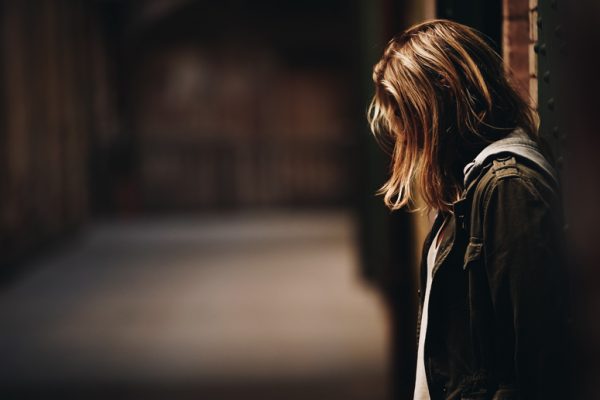Over the last few weeks, I have been really in the thick of it in terms of endings, changes and new beginnings. Strictly speaking, all of life is about this on a subtle level, in fact it is at the core of most of the issues we deal with as counsellors. It is such a huge topic to try and write about in about 1000 words (I could actually write a whole book on this… don’t worry I haven’t, keep reading!), but I am going to try and talk about some of the themes that we might consider the most general to the human race’s difficulties with endings and change.
The Oxford dictionary definition of ‘change’ is: “the fact of becoming different”. ‘Loss’ and ‘endings’ are all huge and significant parts of the umbrella of change. It is hard to imagine an ending, without some change involved. So I will be speaking of endings, change and loss interchangeably within their many different guises.
Firstly, I want to look at endings and changes where we feel we may not have had a choice in it. For anyone who has ever suffered bereavement, I am sure this may strike a chord. But it spills over into all kinds of areas of life, including things such as losing a job or the end of a romantic relationship.
I want to use my own experience so I can tune in on some real feelings in this piece. My relationship with death and endings often comes back to an event that I had in my twenties where I came close to a sudden death and I believed I was going to die. That is a funny experience in itself, because it is like looking death in the face, thinking “this is it, the end”… and then you come out of the fuzz and realise you are actually still alive. Trying to cope after, but struggling due to Post Traumatic Stress PTSD (being in a state of ‘flight or fight’ shock reaction), my whole life changed in an instance. This brought a loss of many things from the more practical, such as my career, to more importantly an understanding of who I was and the hopes and dreams I had as a young person. Part of me did die that day – and I often think the same can apply when someone with whom you have a close attachment dies. The changes are so big that you know nothing will ever be quite the same again, and yet you have had a complete lack of control over it, which can be frightening.
When people suffer a huge loss, bereavement, change or traumatic ending, ‘dying’, can become an over prescribed adjective; it can affect you forming new attachments with others, it can affect intimacy and trust. When you have experienced a violent crime where a close death or the death of another came at the hands of someone else, panic can set in and our need to feel safe and be in control, can affect our day to day living. Paradoxically, you can spend your life trying to be in control, to save those attachments you care so much about, but in turn you push them away to save yourself the pain of losing them again.
This mentality plays out in all aspects of life when it comes to endings. In day to day life, we can see patterns in how people deal with endings. Often, we as humans, opt for a specific approach to cope with change or an ending that we have no control over. Some people cling on, trying to avoid the painful ending, hoping it never has to come. Others run away and avoid ‘doing’ the ending because it’s too much to cope with. And then there are those people who have to turn on whatever it is they are leaving behind, choosing to act out in an blaming or aggressive way: in these cases it is much easier to pretend you don’t care and are pleased about the ending, hate what you really love – rather than exposing (to both others and yourself) your vulnerability.
The ultimate way of avoiding endings is to never form attachments of significance. The fear being, that if you ever really put your heart into something, or somebody again, it might kill you. With attachment comes surrender, and all its possibilities of endings, change and the loss of control.
It is only in accepting that there are some changes or endings we have no control over, that gives us the courage to embrace those we do have choice in. When I woke up fully from my own nightmare, I found strangely that somehow I got myself to a really safe place (such is the strength of human survival). But I do not think that it is the ‘safe space’ that makes us live again. Yes, sometimes it is needed, and maybe once this was the right choice or place to be, but it is certainly easy to stay in a ball of cotton wool – and let’s not be naïve about just how comfy that ball of cotton wool is. Fear creates anxiety, sometimes depression, so it is true that we often suppress the fear and cling on for dear life to the comfortable, even if it might be wrong for us. Building a fortress around you can sometimes seem the answer; you think it protects yourself and those you love the most. But if the castle you are living in is made of sand, like everything else that will only slip away.
The prolific artist and poet William Blake who lived in the late 18th century, sums it up nicely in 4 lines (!) in his poem Eternity:
He who binds himself to a joy,
Does the winged life destroy;
But he who kisses the joy as it flies
Lives in eternity’s sunrise.
Here, he speaks of the power of embracing past experience, but then being able to let it go. That way, the freedom of change becomes a positive for our existence.
When your soul recognises a gaping chasm, and you experience the pull of something so visceral; you get the feeling that you are really alive, not just surviving. It can feel like standing on the edge of a precipice between light and dark…..yet you are not really sure which is which. But it is only through these risks that you can really begin to embrace change. Grabbing it and just eating it up can sometimes be the only way to push through the ambivalence and its accompanying fear. Trusting that with endings or change becomes new possibilities: ones that may not have been possible otherwise, seems really important for our growth as human beings. It ain’t easy though folks!
Change, loss and endings will always remind you of significant past experiences. In addition it often produces questioning and scrutiny over your very real present life. But whether it’s a death of a loved one, your own losses, or a necessary change that is evolving; when you can separate out the ‘memory’ or that which belongs rightfully in the past, from your ‘reality’ in the here and now, I think you give yourself as a person a new chance everyday for really living and making the most of your life.
After all everyone deserves new opportunities, everyone deserves happiness, and as Walt Disney tells us, above all, at least once in our lives given the chance – everyone deserves a happy ending!







